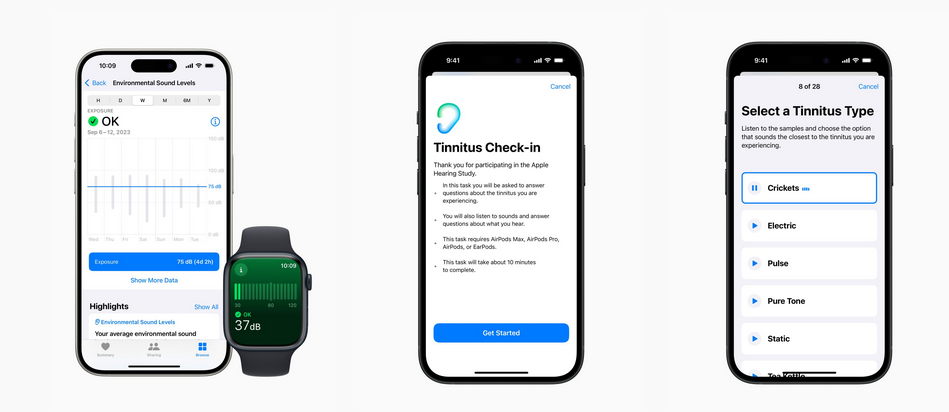
The University of Michigan research team released preliminary data from one of the largest studies ever conducted on tinnitus, carried out as part of the Apple Hearing Study. This study, which involved more than 160,000 participants, aims to improve understanding of tinnitus characteristics and to inform future research on potential treatments.
Rick Neitzel, a professor of environmental health sciences at the University of Michigan’s School of Public Health, said: “Approximately 15% of participants suffer from tinnitus every day. The trends we are detecting can help us better understand at-risk groups and guide efforts to reduce the consequences of this disorder.” Neitzel pointed out that the Apple Hearing Study offers a unique opportunity to expand scientific knowledge about tinnitus and improve problem management.

Prevalence and impact of tinnitus
The study found that 77.6% of participants suffered from tinnitus at least once in their lives, with a higher prevalence among people over 55. Men reported a daily acufene frequency of 2.7% higher than women. However, 4.8% more than men said they had never suffered from tinnitus.
Management of the tinnitus
The most common methods of alleviating tinnitus among participants were the use of machines for noise (28%), listening to sounds of nature (23.7%) and meditation (12.2%). Less than 2.1% chose cognitive and behavioral therapy.
Causes and characteristics of tinnitus
Noise trauma (20.3%) and stress (7.7%) were cited as the main causes of tinnitus. Most of the participants described tinnitus as a pure tone (78.5%) or white noise (17.4%). 35.8% of people over the age of 55 reported suffering from it constantly.
Technology and prevention
Apple’s technologies offer different hearing health features, such as the Noise app on Apple Watch, which alerts users when environmental noise levels are dangerous. The iPhone Health app records sound levels and informs the user if they exceed the limits recommended by the World Health Organization. Functions such as active noise cancellation on the AirPods Pro and the Reduction mode of intense sounds help to protect your hearing.
The study, launched in 2019 and conducted in collaboration with the University of Michigan, has collected about 400 million hours of data on environmental sound levels, which will be shared with the World Health Organization to contribute to the Make Listening Safe initiative.
read also: Apple WatchOS 11 revolutionizes health and fitness